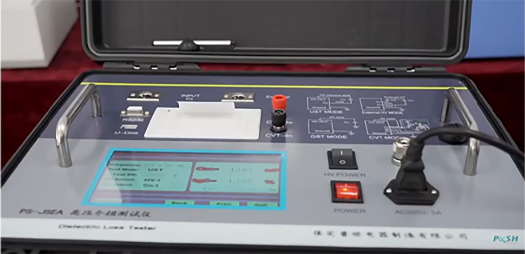 English
English


Battery Impedance Measurement Tools for Efficient Energy Management and Performance Assessment
Understanding Battery Impedance Testers
In the realm of battery maintenance and diagnostics, the battery impedance tester has emerged as an invaluable tool. Designed to measure the internal resistance of a battery, these testers provide critical insights into the condition and performance of batteries used in various applications, from automotive vehicles to renewable energy systems.
Battery impedance is a key indicator of a battery's health. As batteries age or if they become defective, their internal resistance tends to increase. This rise in resistance can result in reduced efficiency, leading to poorer performance and shorter lifespan. By measuring the impedance, technicians can assess the battery's state of health (SOH) and state of charge (SOC) without needing to fully discharge it.
The operation of a battery impedance tester is relatively straightforward. By applying a small, alternating current (AC) to the battery, the tester measures the voltage response. This data is then processed to calculate the impedance value, usually expressed in ohms. Unsurprisingly, lower impedance values indicate healthier batteries, while higher values suggest potential issues.
battery impedance tester

One of the significant advantages of using battery impedance testers is their non-destructive testing method. Unlike traditional capacity testing, which can lead to battery depletion, impedance testing allows for quick and efficient assessments without compromising battery life. This feature is particularly beneficial in industries where battery downtimes can lead to considerable economic losses.
Various models of battery impedance testers are available on the market, each offering unique features. Some are portable and designed for field use, while others may be benchtop units with advanced analytics capabilities. High-end models may include features like data logging, connectivity to computers or smartphones, and integration with battery management systems (BMS). This innovation facilitates not just immediate diagnostics, but also long-term monitoring and trend analysis.
Battery impedance testers are crucial not only for maintenance but also for optimizing battery performance in energy storage systems. As the world increasingly leans towards renewable energy, the need for efficient battery management systems will only grow. Using impedance testing can enhance the reliability and efficiency of batteries used in solar, wind, and electric vehicle applications.
In conclusion, battery impedance testers play a pivotal role in ensuring battery performance and longevity. By providing a quick and accurate method to gauge battery health, they enable industries and consumers to maintain their battery systems effectively, thereby driving efficiency and sustainability in diverse applications. As technology progresses, the evolution of these testers will undoubtedly enhance their functionalities, making them even more indispensable in battery management.
-
Differences between open cup flash point tester and closed cup flash point testerNewsOct.31,2024
-
The Reliable Load Tap ChangerNewsOct.23,2024
-
The Essential Guide to Hipot TestersNewsOct.23,2024
-
The Digital Insulation TesterNewsOct.23,2024
-
The Best Earth Loop Impedance Tester for SaleNewsOct.23,2024
-
Tan Delta Tester--The Essential Tool for Electrical Insulation TestingNewsOct.23,2024





